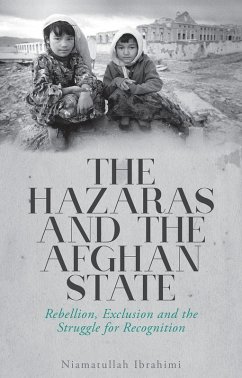The Hazaras of Afghanistan have borne the brunt of many of the destructive forces unleashed by the establishment of the Afghan monarchy in 1747. The history of their relationship with the Afghan state has been punctuated by frequent episodes of ethnic cleansing, mass dispossession, forced displacement, enslavement and social and economic exclusion. Mostly Shia in a country dominated by Sunni Muslims, and identifiable because of their Asian features, the Hazaras became Afghanistan's internal 'Other'. They look different and practice a different school of Islam in a country that is prone to internal conflict and the machinations of external powers. The history of the Hazaras therefore offers a unique perspective into the deep contradictions of Afghanistan as a modern state, and how its ethnic and religious dynamics continue to undermine the post-2001 political process. This volume provides a fresh account of both the strategies and tactics of the Afghan state and how the Hazaras have responded to them, focusing on three key phenomena: Hazara rebellion and resistance to the intrusion of the Afghan state in the nineteenth century; the incorporation of the Hazara homeland into Afghanistan in the 1890s and their subsequent marginalization and exclusion; and the Hazaras' ethnic mobilization and struggle for recognition in recent decades.
Dieser Download kann aus rechtlichen Gründen nur mit Rechnungsadresse in A, B, BG, CY, CZ, D, DK, EW, E, FIN, F, GR, HR, H, IRL, I, LT, L, LR, M, NL, PL, P, R, S, SLO, SK ausgeliefert werden.





![Other Side Of The Mountain: Mujahideen Tactics In The Soviet-Afghan War [Illustrated Edition] (eBook, ePUB) Other Side Of The Mountain: Mujahideen Tactics In The Soviet-Afghan War [Illustrated Edition] (eBook, ePUB)](https://bilder.buecher.de/produkte/42/42399/42399734m.jpg)



